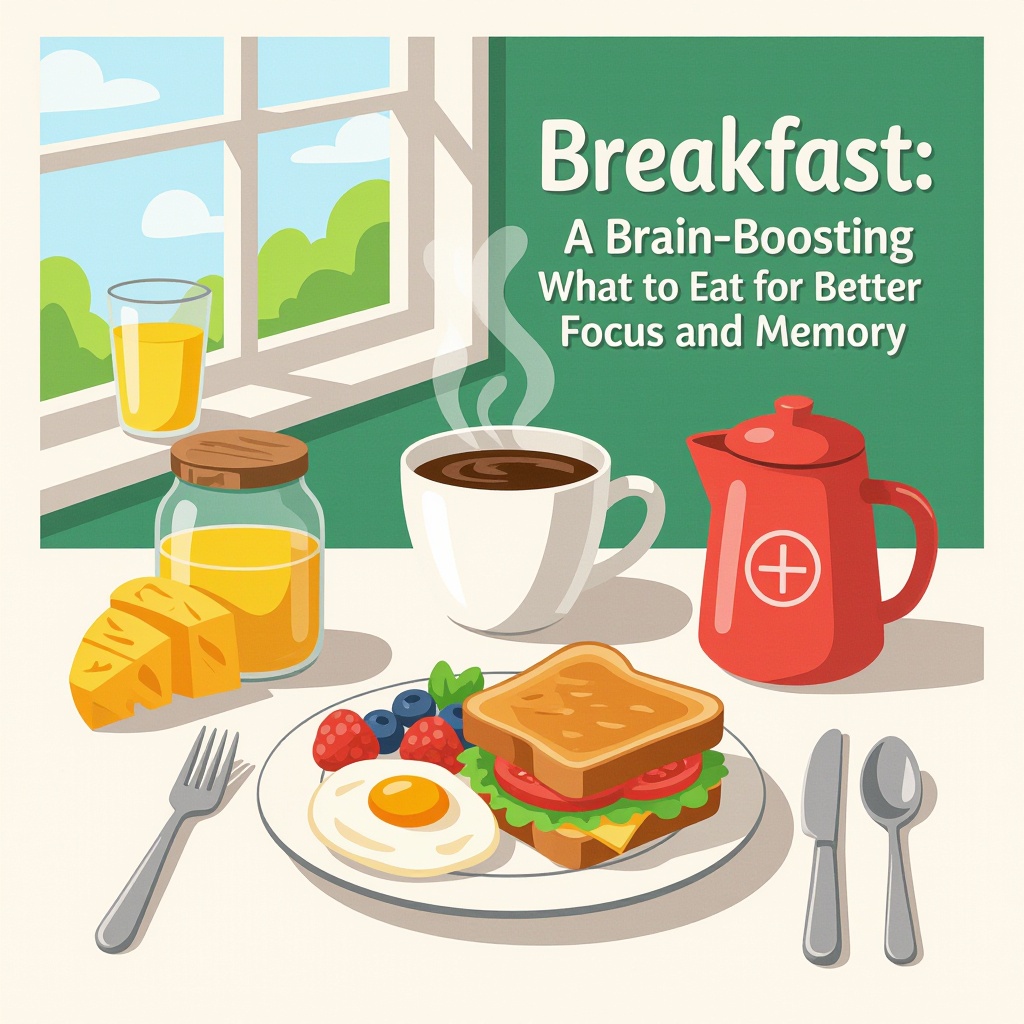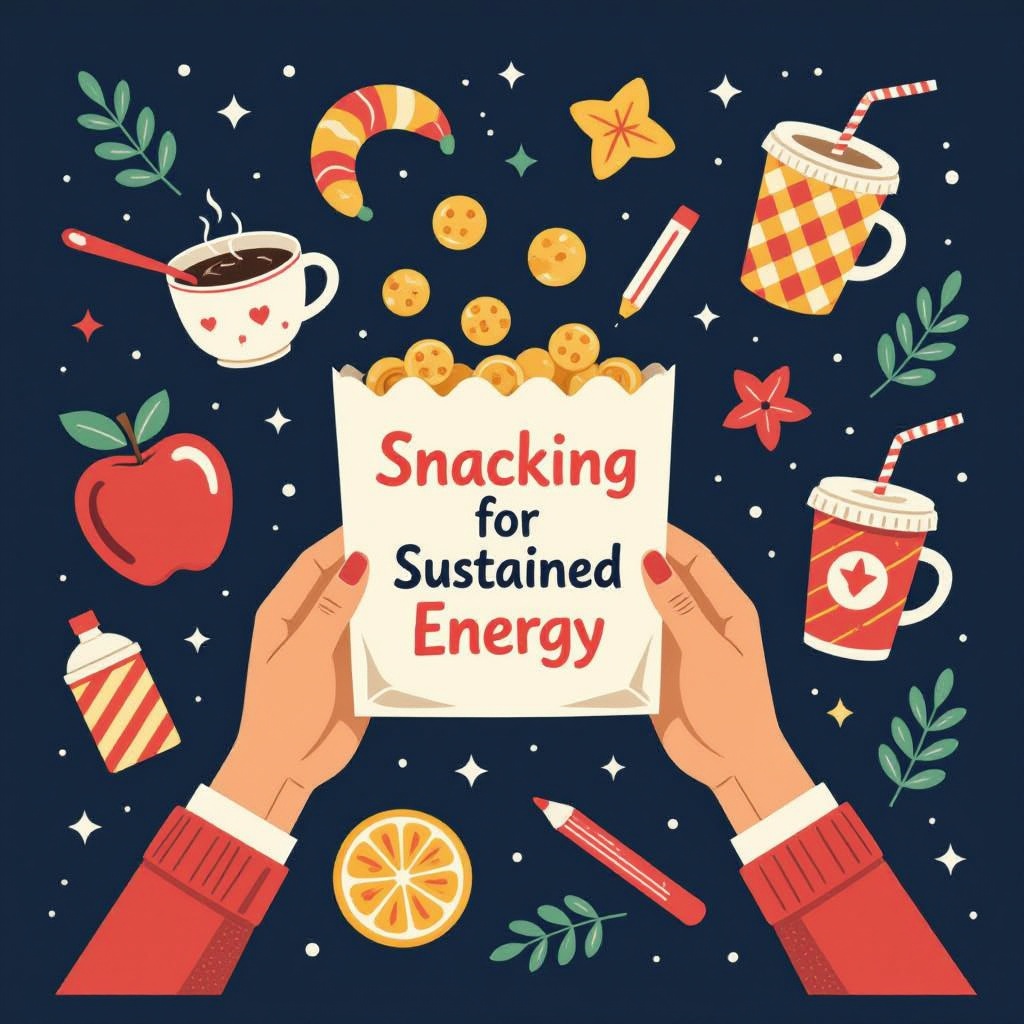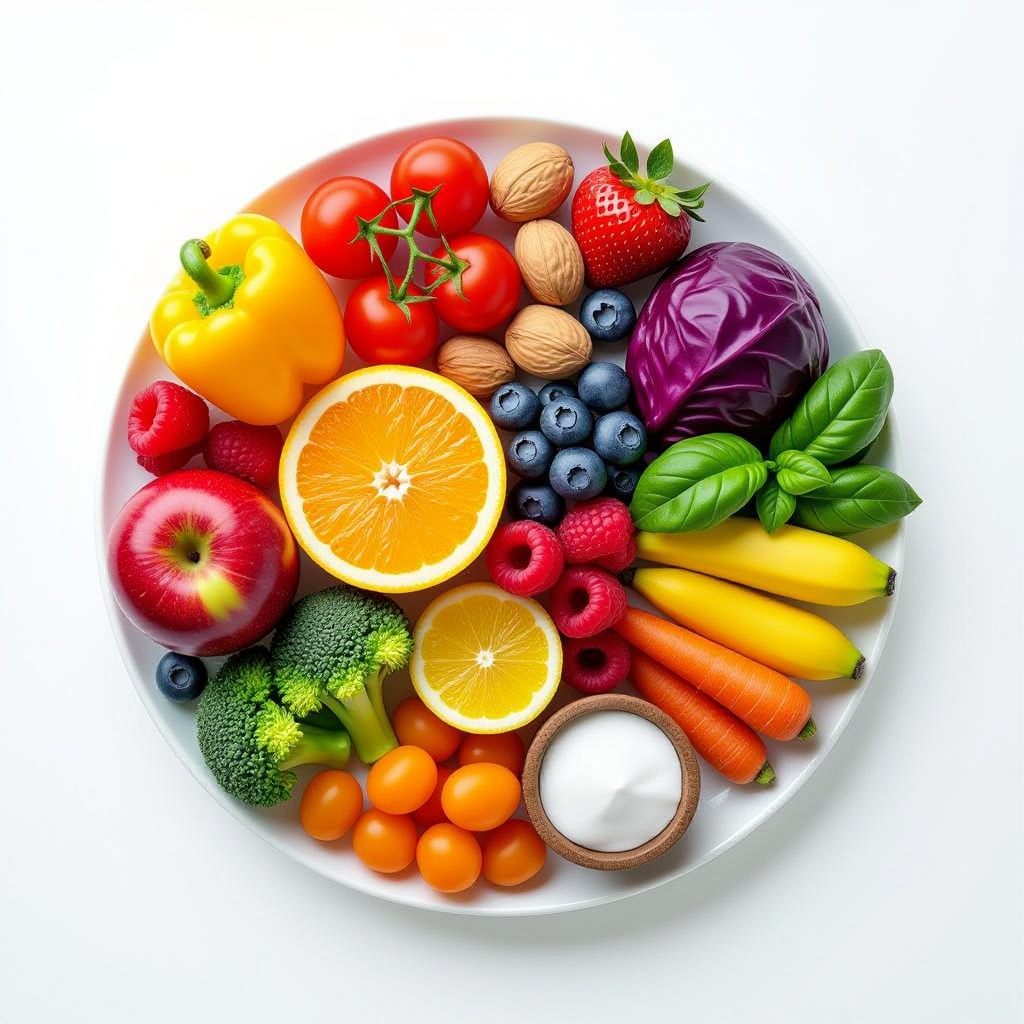Exam Season Nutrition: What to Eat for Better Focus and Memory shines a light on the importance of a well-balanced diet and adequate hydration to boost cognitive performance during exams. By choosing the right nutrients and foods, students can enhance their focus, memory, and overall academic achievements.
Key Takeaways:
- Keep meals balanced with a mix of vegetables, proteins, and complex carbohydrates for mental clarity and steady energy.
- A healthy breakfast is essential for cognitive performance. Options like porridge, eggs, and avocados offer sustained energy and alertness.
- Nutrients like omega-3 fatty acids, antioxidants, iron, and B Vitamins are crucial for brain health and academic success.
- Hydrate well for mental clarity, and manage caffeine intake to prevent sleep issues.
- Choose nutrient-dense snacks like fruits, vegetables, nuts, and seeds to maintain energy levels and support concentration during study sessions.
Balanced Meals and Macronutrient Ratios: The Foundation of Focus
Eating three balanced meals each day keeps your energy levels steady and boosts concentration during exams. It’s about getting the right mix of nutrients to enhance brain function. A balanced meal is simple. Picture your plate: half of it filled with colorful vegetables, a quarter with protein-rich foods like legumes, eggs, or fish, and the last quarter with complex carbohydrates such as whole grains. This combination supports mental clarity and focus.
Protein is crucial in these meals. Foods like eggs and legumes not only build muscle but also aid neurotransmitter function, essential for good memory and focus. Including complex carbohydrates like whole grains or sweet potatoes supplies a slow release of energy, helping you stay sharp longer.
Current statistics show that U.S. adults typically consume around 45.9–47.4% of their calories from carbohydrates, 15.7–16% from protein, and 35.6–36.1% from fat. Comparing these figures with your own diet may guide adjustments if needed for better focus. It’s not just about eating but eating the right kinds. Maintain this balance throughout the day, and watch your focus and memory improve.
Breakfast: A Brain-Boosting Essential
Eating breakfast can boost academic achievement. Data shows that regular breakfast eaters boast a GPA of 2.9 compared to 2.6 for those who skip it. Additionally, they achieve 17.5% higher standardized test scores and attend 1.5 more school days each year (source: data provided). These numbers highlight the importance of breakfast for cognitive performance.
For a top-notch breakfast, consider options that fuel your brain. Porridge offers slow-releasing energy. Eggs are packed with protein, aiding mental alertness. Avocados on whole grain bread provide healthy fats, essential for brain function. Don’t forget fresh fruit to provide vital vitamins and minerals. Incorporating these choices can set a solid foundation for success in your studies.

Cognitive-Boosting Nutrients and Foods
The brain craves the right nutrients to perform at its best, especially during exam season. Key nutrients like B Vitamins, omega-3 fatty acids, antioxidants, and iron play a crucial role in boosting cognitive performance.
Omega-3 fatty acids, vital for brain health, are found in oily fish like salmon and mackerel. They improve memory and assist in maintaining mental acuity. Antioxidants, found in abundance in berries, help combat oxidative stress and support overall cognitive function. Blueberries, strawberries, and raspberries are excellent picks.
Iron and B Vitamins, found in leafy greens and legumes, ensure adequate oxygen transport to the brain and support neurotransmitter function. Iron-rich foods such as spinach and lentils can be particularly beneficial.
It’s interesting to note a study cited by The Journal of Educational Psychology, which found that consuming two or more servings of fruit daily is linked to higher academic achievement. Let’s look at some recommended foods to include in your diet for cognitive health:
- Oily fish: Boosts omega-3 levels
- Berries: Packed with antioxidants
- Leafy greens: Rich in iron and B Vitamins
- Legumes: A great source of iron and B Vitamins
Incorporating these foods into your diet can significantly improve focus and memory. Choosing a diverse range of these “brain foods” doesn’t just support cognitive health but can make a real difference in academic performance. Stay sharp and nourish your mind with the right nutrients.
Hydration and Its Impact on Mental Clarity
Hydration plays a crucial role in maintaining mental performance. Even mild dehydration can lead to fatigue, reduced alertness, and headaches. It’s important to monitor your fluid intake to stay sharp and focused during exam season.
Stay cautious with caffeine. While 1–2 cups can enhance concentration, excessive consumption may disrupt sleep, impacting cognitive function.
For optimal hydration, prioritize water, herbal teas, or diluted juices over energy drinks. Energy drinks might promise a quick fix, but they often contain high caffeine and sugar levels that can create more harm than good. Keep a water bottle nearby to remind yourself to sip throughout the day and maintain peak mental clarity.

Snacking for Sustained Energy and Focus
During exams, choosing the right snacks can make or break your study sessions. I recommend brain-healthy options like fruits, vegetables, nuts, and seeds. These not only help stabilize blood sugar but also support mood and energy levels. Opting for these nutrient-dense snacks ensures you’re fueling your brain effectively.
While reaching for snacks, be cautious of those high in sugar and fat. Such choices often lead to energy crashes, which, in turn, can disrupt focus. Stay away from these to maintain consistent energy throughout your study periods. By prioritizing healthy snacks, you’ll find it easier to maintain the concentration necessary for tackling those challenging exam topics.

Eating Patterns and Stress: Handling Exam Periods
Stress during exams can throw eating routines off balance, leading to scenarios like hyperphagia, where food intake increases, or hypophagia, where it decreases. Maintaining a consistent dietary pattern is crucial for focus and well-being.
For those experiencing stress-related changes in appetite, consider these dietary tips:
- Increase your intake of balanced meals with proteins, whole grains, and vegetables to stabilize energy levels.
- Stay hydrated to support cognitive performance.
- Opt for snacks like nuts and fruits that support brain health.
Focus on a diet that offers stability, which helps in maintaining concentration and supports overall mental health. Such resilience in eating habits ensures you don’t just survive exam periods but thrive through them. Adjusting dietary patterns mindfully can make a significant difference.
Sources:
National Center for Biotechnology Information (NCBI) – PMC4583157
Nutritionist Resource – Boost Nutrition and Learning Through Exam Season
National Center for Biotechnology Information (NCBI) – PMC5746694
University of Surrey – Eating for Exam Success
Centers for Disease Control and Prevention (CDC) – Diet and Nutrition FastStats
School Nutrition Association – About School Meals – School Meal Statistics
U.S. Food and Drug Administration (FDA) – Nutrition Facts Label
Centers for Disease Control and Prevention (CDC) – NHANES (National Health and Nutrition Examination Survey)

One Comment
[…] Eat well and sleep sufficiently: A nutritious diet and enough rest are crucial for maintaining focus and energy. […]